Rocky Field Farm – East Tennessee
Part of the 25 Projects for 25 Years series.
Tennessee is home to countless generational family farms that make up the fabric and character of our state. Wayne Hughes and his family partnered with The Land Trust for Tennessee to place a conservation easement on his own family’s Pioneer Century Farm in 2009. This designation is given to farms that have been actively maintained by the same family for over 200 years. Rocky Field Farm is currently a cattle operation, but it’s gone through many changes since 1796 when Hughes’ ancestors first settled on it.
“Going back to 1796 the world was much different,” Hughes said. There wasn’t much cleared land here. This was the Wild West. It was mostly forested. So, it was subsistence farming at that point. It was more or less just chickens, pigs, a milk cow, some mules or horses.”
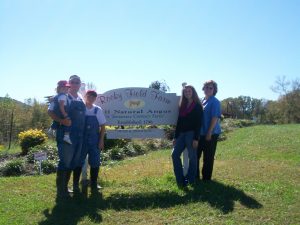
Hughes family at Rocky Field Farm.
Hughes’ ancestors, of German descent, first settled in Pennsylvania before making their way down to Tennessee, where they established the farm in a small valley in northern Greene County, which came to be known as Weiss Valley.
“It wasn’t until the modern age, until my dad took over in 1973 that we had a dairy and tobacco farm, and that’s how I was raised,” Wayne explained. “When he got sick, I bought the farm to keep it from being foreclosed. I stopped row crops and haying then converted everything to pasture, and now its solely a beef operation.”

Hughes has turned his family farm into a cattle operation.
Hughes’ upbringing on the farm was filled with cherished memories and a deep connection to the land. “I remember the honeybees buzzing everywhere, getting stung every single day on my feet because I’d walk around barefoot,” he recalled. “My brothers and I would spend our days exploring the woods, playing games, and gathering with family for picnics and suppers.”
He continued, “We’d shuck corn under the shade tree in the front yard and can green beans. When I was little, my papaw would milk cows by hand, and my Mamaw and I would churn butter. We’d go out and pick poke greens in the spring. In the summer we’d pick blackberries, and in the fall, we’d pick pawpaw’s. We’d kill hogs and make sausage and cure hams. So, knowing the history and the heritage, and all my own memories and how it used to be, I started feeling like I wanted to restore Eden.”
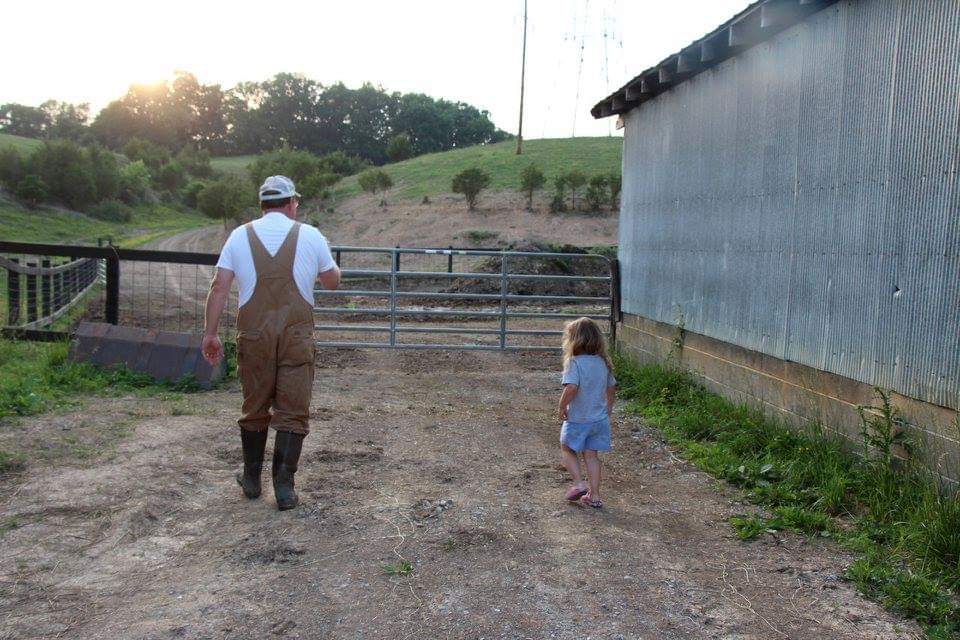
Wayne Hughes is working to restore his family farm so that his children and grandchildren can enjoy the type of place he did as a child.
Despite the changing times, Hughes remains committed to protecting the farm’s history and natural beauty. Concerned about the environmental impacts of overdevelopment, he sought to protect the land for future generations.
Hughes explained, “I saw the development going on and knew it was going to get worse, and now it’s really bad. With the way things are now, open green space and farmland will probably be more valuable in the future. Now, that’s protected in perpetuity. It can’t be broken up. I want to see it stay like it is after I’m gone.”
Initially apprehensive about what a conservation easement would mean for his property, Hughes’ concerns were alleviated as he got to know The Land Trust for Tennessee. “I see now after 15 years that there’s no overreach,” he affirmed. “No one’s telling me what to do. I have respect for your employees.”
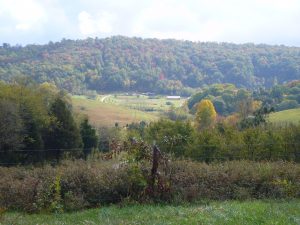
Hughes property in Greene County.
The family history and memories aren’t the only things that influenced Hughes to want to protect his farm. He’s concerned about the environmental impacts of overdevelopment as well.
“You’ve got to have open space in order to filter groundwater, absorb carbon dioxide and give off oxygen, grasses sink carbon dioxide,” Hughes explained. “Grazing of cattle intensifies that beneficial carbon sequestration.
Hughes recalled the modernization movement of the 70s and the effect it had on the farm.
“When I was a boy there were Bob White Quail everywhere, Hughes recalled. “There was a push in the 70s to modernize. He [Hughes’ father] plowed up the whole farm and replanted it with fescue and clover, etc. But those are not clump grasses like the natives (Indian grass, broom sage, blue stem, big blue stem), so the young quail can’t live there because they can’t walk through it, and it doesn’t provide cover.”
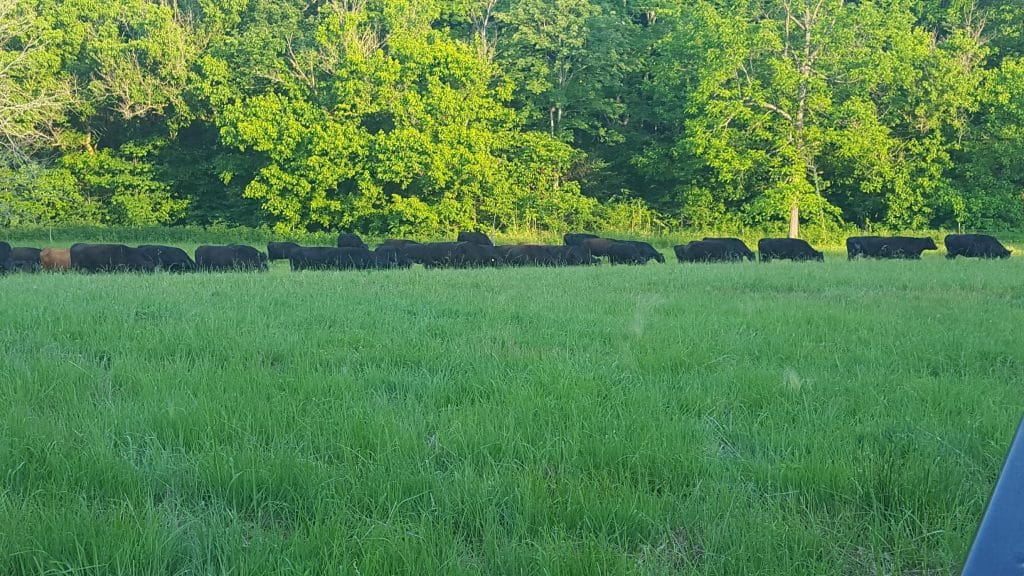
Cattle at Rocky Field Farm.
He gave another example of the devastating effects of unsustainable development.
“When the local golf course was built, the flow of the stream was interrupted, and it killed off all the fish. That stream was full of suckers and Horny heads, minnows, and brook trout. I was lucky to have seen the place before and after. Just a few things like the reseeding of a farm and the construction of a lake at a golf course up stream was all it took to ruin an ecosystem. So, I realized at an early age how fragile the environment is. God made us stewards of the land and we ought to take care of it.”
Now, Hughes is making it his mission to do his part in restoring the land he loves.

Wayne Hughes grilling at the grand opening of the Markets West Farm Bureau office in Johnson City, TN.
“I want to bring back the bees and the quail, restore the native grasses and get fish back in the creek,” he said. “I’m going try to check into programs about restocking the fish. I’m on the Board of Directors of the US Regenerative Ag Alliance and I plan to drill some red river crab grass for this year’s summer grazing with the Aitchison drill they rent out and I’ll put some cow peas in with. I’ve already established some big blue Stem, little blue stem, and Indian grass. I’m gonna try to reintroduce as many natives as possible.”
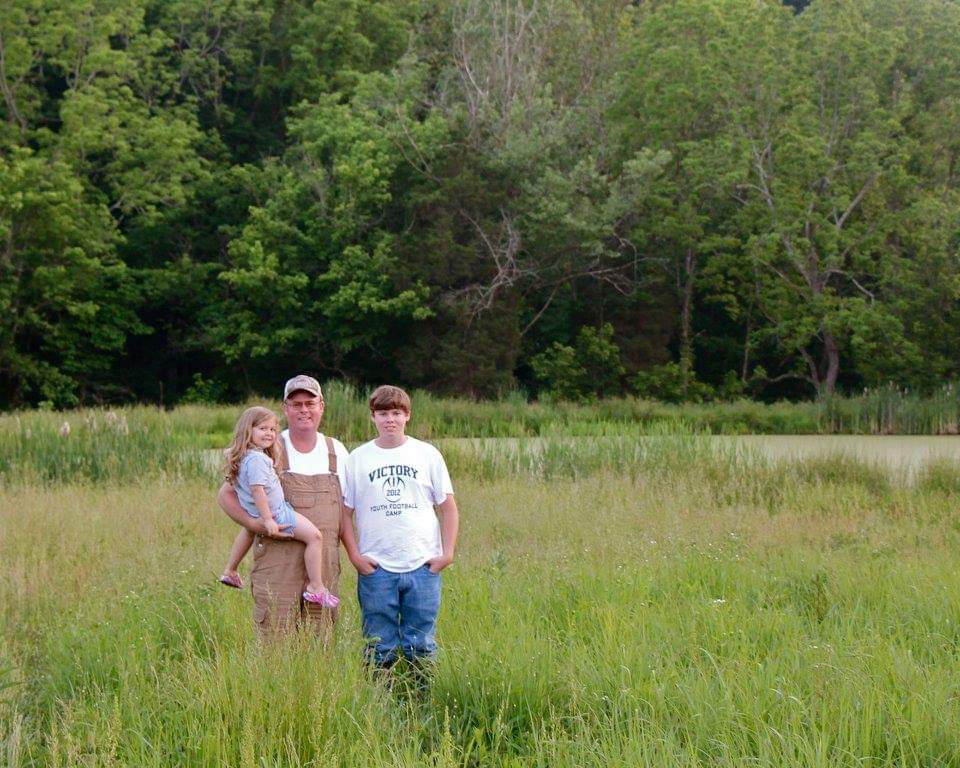
Hughes family at Rocky Field Farm.
In Wayne Hughes and Rocky Field Farm, we find a testament to the enduring legacy of Tennessee’s agricultural heritage—a legacy that The Land Trust for Tennessee is proud to help protect for generations to come.
Find out how you can support The Land Trust for Tennessee’s conservation work.